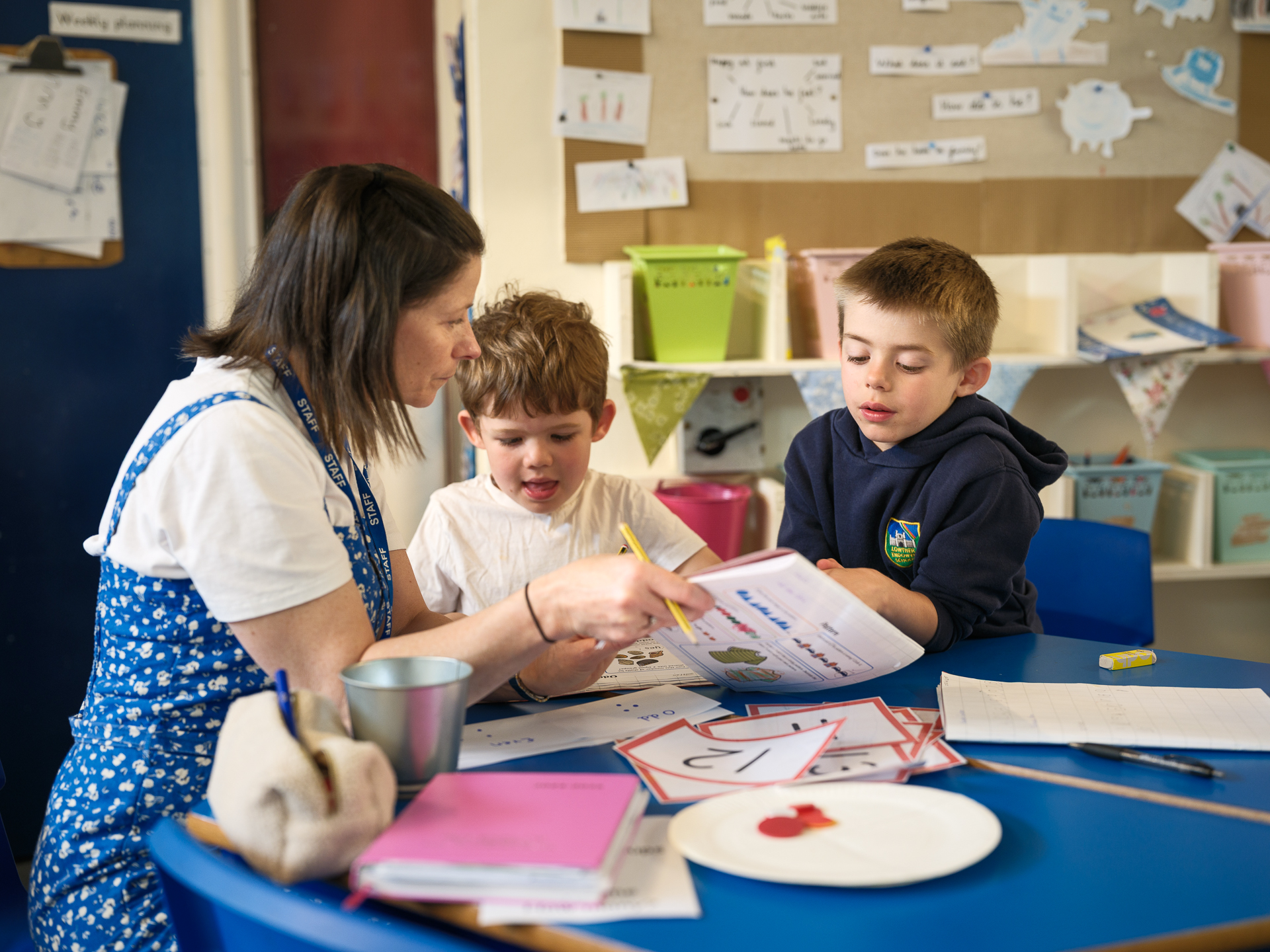Maths

Mathematics at Lowther Endowed School is carefully designed to develop pupils’ confidence, fluency, and a deep conceptual understanding of mathematical principles. We believe maths is a vital life skill and a gateway to many career paths, so our curriculum focuses on fostering a positive attitude and curiosity towards the subject. Through a balance of practical exploration, reasoning, and problem-solving, we aim to equip pupils with the ability to apply maths confidently in everyday situations and future academic study.
Intent
Our Maths curriculum intends to:
-
Develop fluency in core mathematical skills including number, calculation, geometry, measurement, and data handling, aligned with the National Curriculum expectations.
-
Cultivate reasoning and problem-solving skills by encouraging pupils to think critically, make connections, and approach challenges logically.
-
Promote a growth mindset where pupils understand that effort and perseverance lead to improvement in maths.
-
Ensure pupils are able to communicate mathematical ideas effectively using correct terminology and representations.
-
Provide a curriculum that is inclusive, supporting all learners including those with SEND and those who are more able to extend their learning.
-
Embed maths in real-world contexts so children understand its relevance and can apply it to everyday life, work, and society.
-
Build on prior knowledge progressively, ensuring skills are revisited and deepened over time to secure long-term retention.
Implementation
-
Maths teaching is structured around a clear, coherent sequence of units that gradually increase in complexity, ensuring pupils develop a deep and connected understanding.
-
We use a range of teaching strategies including direct instruction, guided practice, collaborative problem-solving, and investigative tasks.
-
Concrete resources (manipulatives) such as counters, base-ten blocks, and measuring tools are routinely used to support conceptual understanding before moving to pictorial and abstract representations.
-
Visual models like number lines, bar models, and arrays are integral to lessons, helping pupils to visualise problems and solutions.
-
Lessons incorporate regular opportunities for pupils to explain their reasoning verbally and in writing, enhancing mathematical communication skills.
-
Digital tools and interactive software supplement teaching, providing additional practice and engagement.
-
Ongoing formative assessments, including questioning and practical tasks, help teachers identify gaps and tailor support to individual needs.
-
Cross-curricular links are carefully planned, for example, using data handling in science, measuring in DT, and pattern recognition in art.
-
Homework and home learning activities reinforce classroom learning and encourage parents to engage with their child’s maths development.
Impact
-
Pupils demonstrate confident use of a wide range of mathematical skills and can apply these in unfamiliar contexts.
-
Children show increasing independence in problem-solving, often using reasoning to explain their solutions and justify their methods.
-
A culture of resilience means pupils are less afraid of challenges and more willing to try different approaches to solve problems.
-
Assessment outcomes reflect strong progress across all year groups, with pupils meeting or exceeding age-related expectations.
-
Pupils leave Lowther with the mathematical foundation required for secondary education and lifelong practical use, including financial literacy and analytical thinking.
-
Feedback from pupils and parents shows a positive attitude towards maths and enjoyment of the subject.
-
Staff use assessment data effectively to identify trends and continuously improve teaching strategies.
Cultural Capital in Maths
Our Maths curriculum provides pupils with essential skills and experiences that extend beyond the classroom, enriching their cultural capital by:
-
Developing numeracy skills vital for managing personal finances, understanding technology, and interpreting information in the modern world.
-
Encouraging logical thinking and problem-solving abilities valued in a wide range of careers, including science, engineering, finance, and technology.
-
Exposing pupils to diverse mathematical ideas, including historical contributions from cultures worldwide, helping to promote global awareness and respect.
-
Applying maths to real-life contexts such as shopping, cooking, sports statistics, and environmental data to highlight relevance and build life skills.
-
Using collaborative tasks and mathematical discussions to build communication skills, teamwork, and confidence.
-
Preparing pupils to be informed citizens who can critically analyse data presented in media and society.
What does Maths look like in EYFS .....
In the Early Years Foundation Stage, Maths is integrated throughout children’s play and daily routines to develop early mathematical understanding in a natural and engaging way:
-
Children explore counting through songs, rhymes, and everyday interactions, learning to recognise numbers and match quantities accurately.
-
They use a wide range of objects and resources to compare size, weight, and length, building vocabulary like “longer,” “heavier,” and “taller.”
-
Children engage in shape and space activities, such as building with blocks, sorting objects by attributes, and recognising patterns in the environment.
-
Simple addition and subtraction are introduced using concrete objects and visual aids to solve practical problems, like sharing snacks or tidying up.
-
Opportunities to measure time, distance, and volume are incorporated into play, such as timing races or filling containers with water.
-
Children are encouraged to talk about their mathematical thinking, describe patterns, and explain their ideas during guided and independent activities.
-
Maths is embedded in stories, role play, and sensory experiences, ensuring children see maths as part of the world around them.
-
Staff use continuous observations and assessments to plan activities that challenge and support each child’s mathematical development.
